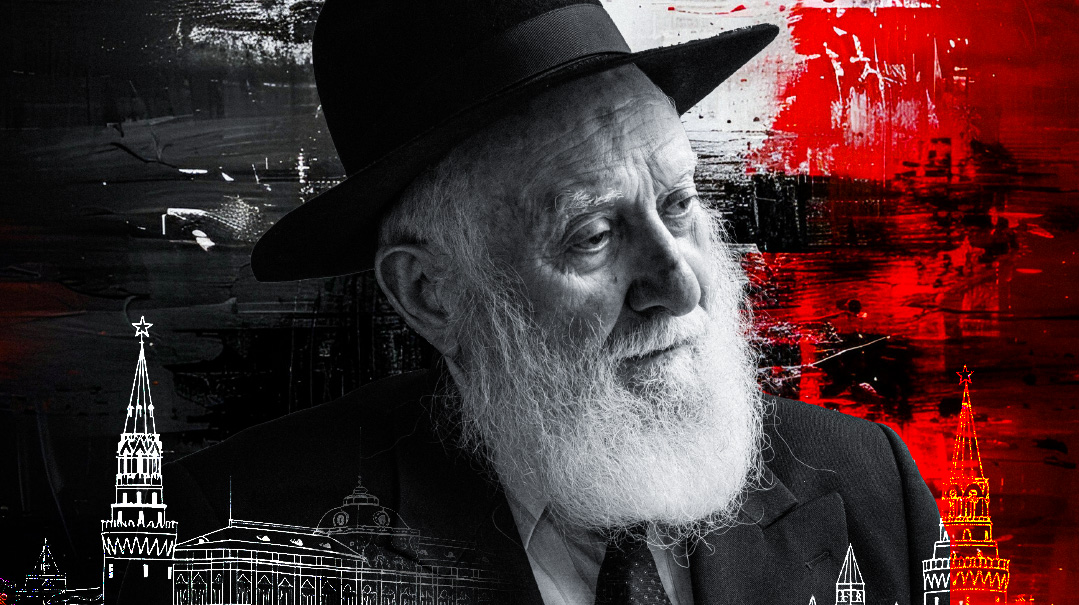Faith and Defiance

Creating a network of schools and services under the noses of the KGB. A memoir of challenge and survival

Photos: Jeff Zorabedian
Lvov train station, July, 1960
“Passport please,” the Soviet policeman demanded.
Rabbi Hillel Zaltzman, clutching a suitcase full of anti-Communist contraband — including siddurim, Tanyas, and religious pamphlets — handed over his passport, heart racing with fear.
The policeman scanned the document, noting suspiciously that Reb Hillel was from Samarkand, Uzbekistan — 4,000 kilometers from Lvov.
“Open your suitcase, comrade,” the policeman instructed.
Rabbi Zaltzman was panic-stricken and thought the game was up. But then he recalled an old chassidic tale. Back in the 1800s, went the story, a Lubavitcher chassid named Reb Moshe Meisels was ordered by his rebbe, Rav Shneur Zalman of Liadi, to spy for the Russians against Napoleon. Caught and accused of espionage (according to the story, by Napoleon himself), Reb Moshe managed to feign complete innocence by concentrating on the chassidic idea that, “the mind rules the heart.”
Rabbi Zaltzman attempted the same strategy.
“I mustered my inner reserves… and with a relaxed smile I began to open the suitcase,” he says. At that point, the only thing between him and a steep jail sentence — or worse — were a few towels and articles of clothing sparsely covering the contraband material. “I felt the policeman eyeing me and I continued to smile. After I opened the latch, I started to raise the cover. He continued to watch me, and I continued to smile for all I was worth,” Reb Hillel describes.
After a heart-stopping minute, the policeman nodded. “Fine, you can close the suitcase. Please move out of the way.”
INThe Jewish Underground of Samarkand: How Faith Defied Soviet Rule (Mandel Vilar Press), Rabbi Hillel Zaltzman’s newly released memoir, terror and heroism play defining roles. The lifestyle Rabbi Zaltzman endured — full of privation, steep risks, and sheer daring — reads like the dramatic backdrop for an adventure novel. But the stakes — job loss, imprisonment, or worse — were all too real.
“Any Jew who sought to adhere to Torah and mitzvos was marked for incessant persecution,” Reb Hillel says. But despite the terror-laden atmosphere, he, along with many Russian refugees as well as native Bukharans, managed to keep Torah and mitzvos under the worst years of Soviet oppression.
Rabbi Zaltzman, a Chabad chassid living in Crown Heights, never planned on writing a book.
“I am not a professional writer or journalist. I never once imagined that I would one day record my memories of Samarkand, let alone write an entire book,” he admits. So what inspired him to write it? “My son asked me,” Rabbi Zaltzman says simply. “He said, ‘Tatte, how did you survive in the Soviet Union as a religious Jew?’ ”
Stirred by his son’s poignant query, Reb Hillel wrote up his memories and sent them via fax to his longtime friend from Samarkand, Rabbi Moshe Nissilevitch, who had since immigrated to Eretz Yisrael, to review. “I began to write. I wrote, I wrote, I wrote, another page, another page, another page,” he recounts. Soon his memories took up over 20 pages, though they were barely legible. “I myself had difficulty reading the words, having hastily included many notes and corrections throughout the manuscript… it was a mess,” he ruefully admits.
Intimidated, he considered throwing the whole thing away, but another friend living in Eretz Yisrael, Reb Shmuel Levin, encouraged Rabbi Zaltzman to have his memories typed and edited professionally. A series of articles, edited by Rabbi Avrohom Yeshaya Reinitz, appeared in a Chabad magazine beginning in 2000, and soon became a favorite with readers. Eventually, despite some skepticism from well-meaning friends — “At your age you’re buying a computer?” — Rabbi Zaltzman bought himself a computer and taught himself to type.
In 2013, the articles were compiled into a Hebrew book titled Machteres Samarkand She’he’ira Lamerchakim, which was eventually translated into English, Yiddish, and Russian, and sold over 16,000 copies.
“The English edition of the book was so well received by readers, it occurred to me that this story could reach a wider audience in addition to the Chabad community,” Rabbi Zaltzman explains. A few months ago, a version was published in English, abridged to 406 pages, it contains a treasury of stories of courageous risk-taking and self-sacrifice in the shadow of Soviet tyranny.
Oops! We could not locate your form.







